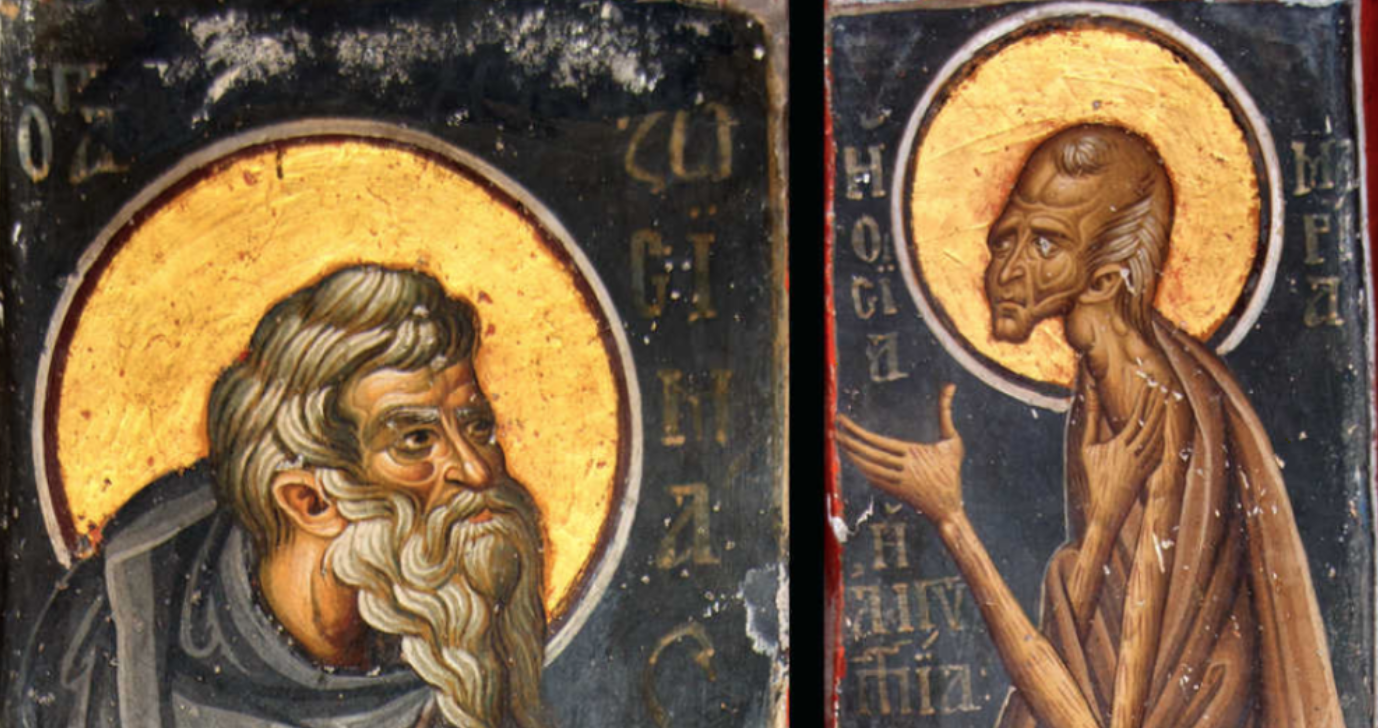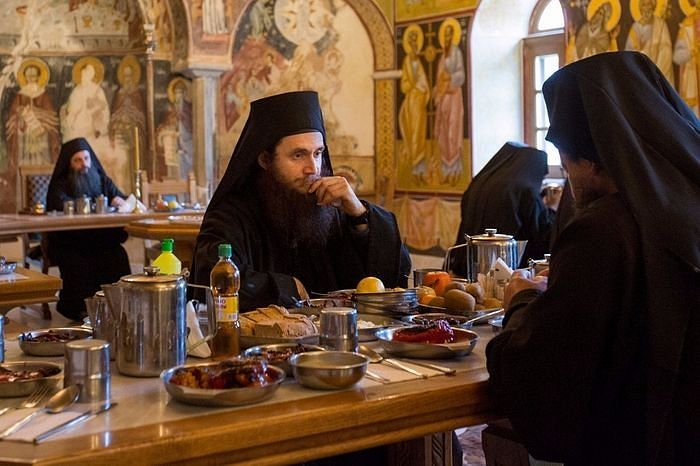Saint Mary of Egypt and the Holy Communion
 Saint Mary of Egypt struggled in desert for forty-seven years without receiving Holy Communion. As it is known, the saint retired to the wilderness to repent of her very desolate life.
Saint Mary of Egypt struggled in desert for forty-seven years without receiving Holy Communion. As it is known, the saint retired to the wilderness to repent of her very desolate life.
On the one hand, we must take it as an extraordinary example of repentance; on the other hand, we must not forget to preserve this extraordinary character.
The Akathist Hymn to the Mother of God
The Akathist Hymn is one of the most well-loved services of devotion in the Orthodox Church. Although there is some debate concerning the particulars of its authorship, many scholars agree with the pious tradition which states that the Akathist was composed in the imperial city of Constantinople, "the city of the Virgin," by St. Romanos the Melodist, who reposed in the year 556. The Akathist Hymn has proved so popular that many other hymns have been written following its format, particularly in the Russian Orthodox Church. These include Akathists to Our Lord Jesus Christ, to the Cross, to various saints, etc.
The Monk John of the Ladder (Lestvichnik; Klimatikos; Climaticus) Commemorated on the 4th Sunday of the Great Lent
The Monk John of the Ladder (Lestvichnik; Klimatikos; Climaticus) is honoured by Holy Church as a great ascetic and author of the reknown spiritual work called "The Ladder", whereby the monk likewise received the title "of-the-Ladder" [Lestvichnik (Slav.); Klimatikos (Grk.); Climaticus (Lat.)].
St. Seraphim on fasting and guarding the mind
 On Fasting
On Fasting
Fasting consists not only in eating rarely, but also in eating little; and not in eating once a day, but also in not eating very much. Unreasonable is the faster who waits for a given hour, and at the hour of trapeza gives himself over to insatiable eating. In both body and mind, our reasoning mind should watch that it not choose between tasty repasts and those that are not tasty. That is what animals do, but it is not praiseworthy in a rational human. We refuse pleasant foods in order to humble the warring members of the flesh and give freedom to the actions of the spirit. A true fast consists not only in exhausting the flesh, but also in giving away to the hungry that piece of bread you would have liked to eat. Blessed are the hungry, for they shall be filled (Matt. 5:6).
False Spirituality or True Prayer?
The Reading from the Holy Gospel according to St. Luke (18:10-14)
For some strange reason people are now too busy for the church. They are too busy to hear the word of God, the word upon which the whole of western civilization was founded. Is it any surprise that the very foundations of western society and morality are crumbling before our very eyes? Is it any wonder that people are often miserable? In truth, they are not only too busy for the church. They are too busy for their salvation, and salvation means a living relationship with the Holy Trinity. That is real life.

